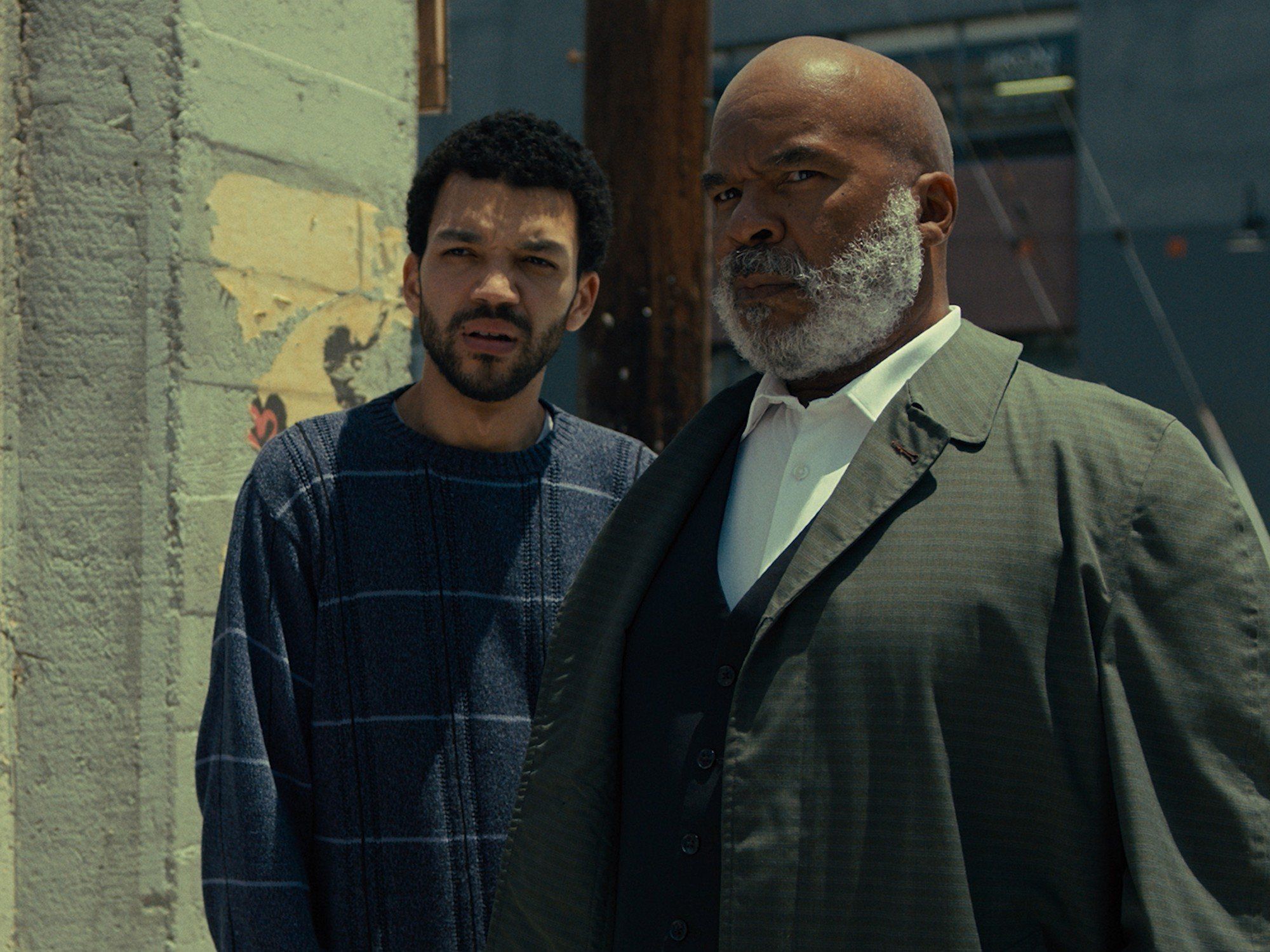Movie Review
Satirical The American Society of Magical Negroes suffers from mid-film pivot

Justice Smith and David Alan Grier in The American Society of Magical Negroes.
It was filmmaker Spike Lee who coined the term “magical negro,” a Black character who seems to exist only to help a white character. Lee's examples include The Green Mile and The Legend of Bagger Vance, but you can go back further to films like Driving Miss Daisy, Ghost, and Lilies in the Field.
The new film The American Society of Magical Negroes aims to send up that tired trope by envisioning a world where such a group actually exists, with the purpose of soothing the discomfort of white people to ensure a harmonious existence between the races.
Written and directed by first-time feature filmmaker Kobi Libii, the film has a satirical premise that initially seems to work well.
Aren (Justice Smith) is a poor-selling artist who is recruited into the group by Roger (David Alan Grier), who shows him just how long the group has been working to keep the peace.
Aren’s first mission is to work alongside Jason (Drew Tarver), a designer at a tech company called MeetBox, and help him rise up the corporate ladder. Things get complicated, however, when Aren meets Lizzie (An-Li Bogan), a fellow designer, and develops a crush on her. When Jason shows interest in Lizzie, Aren must not only help Jason professionally, but also personally, putting his loyalty to the society to the test.
Aren’s introduction to the society yields a number of funny scenes, including Roger bailing him out of a tense situation with three white people, as well as scenes showing the history of successful members of the society. This set-up seems to promise a series of similar scenes in which Aren will have to learn how to be a successful “magical negro” himself.
Instead, Libii quickly pivots to a story that’s more akin to a rom-com than a satire. The magic that Aren is supposed to possess becomes next to non-existent as he settles into a love triangle with Lizzie and Jason. With a divided focus, it becomes unclear how exactly Aren is supposed to help Jason other than being a type of yes-man, which seems less “magical” than sycophantic.
The film winds up as a classic case of not knowing what to do with a promising premise. Even though Libii checks back in often with Roger and the society, that part of the film doesn’t seem to be that important after the first 30 minutes. The rom-com portion works relatively well, as Aren and Lizzie have good chemistry together, but it too suffers because of the need to keep the other part going.
Smith is a rising star who has appeared in a variety of big and small films in recent years. Even though the story is up-and-down, he is an engaging presence throughout. He’s aided by Grier and Bogan, both of whom put in great supporting performances. Aisha Hinds and Nicole Byer are fun in small parts, and Tarver, Michaela Watkins, and Rupert Friend play clueless in entertaining ways.
The American Society of Magical Negroes may not have accomplished the goal of being a biting satire, but it has more highs than lows thanks to its talented cast. For a more successful look at a similar theme, check out the Oscar-nominated American Fiction.
---
The American Society of Magical Negroes opens in theaters on March 15.
